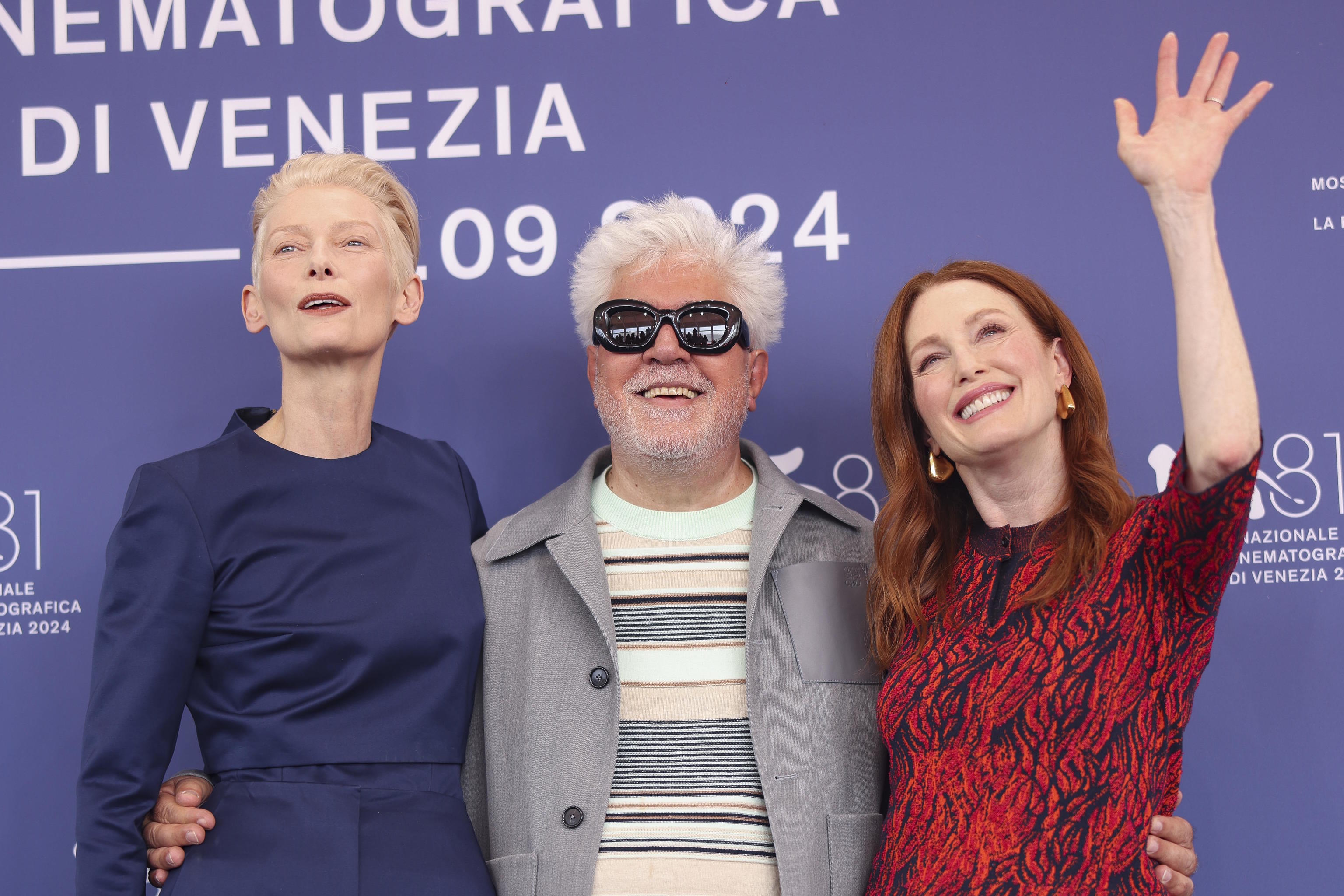"Filming in a language other than Spanish has been like venturing into a different genre of cinema, like science fiction, for example," was the more than expected response to the first question. From there, the filmmaker detailed how he came across Sigrid Nunez's book What Are You Going Through, on which the film is based, and what ultimately convinced him, in addition to the subject matter, was the familiarity with characters shaped and influenced by a world, 1980s New York, as close as it is familiar. "I know other women perfectly well, like the characters played by Tilda and Julianne," he commented.
To set the stage, the film portrays the reunion of old friends. One is a writer who delves into death to exorcise ancestral issues she doesn't understand, while the other is a war reporter who, due to cancer, is simply dying. What emerges between the two speaks of many things. It speaks "of agony in a world that is agonizing," said the director, addressing death, dignified death, as the best way to vindicate life itself. "I was born in La Mancha, I am from La Mancha, and there is a very serious and strong culture of death that women endure. In fact, it is more my sister who is in touch with this way of feeling and thinking than I am. Personally, I am closer to the character in my film who doesn't understand. Regarding death and life, I consider myself very childish and immature," he added.
All of the above, if you will, is personal. But the film, like Almodóvar himself, always goes further. "There are many issues that are central and many are related to the world. In fact, my film is not just the story of two women, it is also my response to the hate speeches present in Spain and throughout Europe... It's delirious, unfair, and stupid to label unaccompanied children as invaders, as the Spanish right-wing does by talking about sending the army. But not only that. I also want to address climate change and speak out against deniers. We have to stop them, we have to stop the deniers. The planet is in danger without them, and with them, it is lost." Pause. And it was then, despite everything, that he showed optimism: "As Almudena Grandes wrote to me in a book once, I am convinced that optimism is the best way to resist."
Another issue, not strictly personal but as agonizing as those mentioned, is euthanasia. "In other films, I have talked about illnesses, but in this case, it is a terminal illness. And from here, I say that I am in favor of euthanasia. The admirable thing about Tilda's character is that she decides to rid herself of cancer by making the decision she makes. She decides to arrive early. It's terrible that people in this situation are still treated as criminals. It's terrible that if you don't profess any faith, you become a threat to all of them. Spain is the fourth European country to have a euthanasia law, but it is important that it becomes a right worldwide."
Julianne describes, very close to enthusiasm, the emotion she feels being inside and as a co-star in a film by a director she has been following her whole life. "When I saw 'Women on the Verge of a Nervous Breakdown' it was incredible," she says and continues: "The impressive thing is that Pedro is Pedro at all times and in everything he does. The first time I went to his apartment, he was in every detail that I had previously seen in his films." By her side, Tilda recalls when, always in the company of Derek Jarman, she would go to see each and every one of Almodóvar's films. "He represented change, and we fed off of that... I always wanted to work with him and even asked him to consider a mute character. In fact, I was willing to learn Spanish just for him." And that, that's how Almodóvarian it is.
